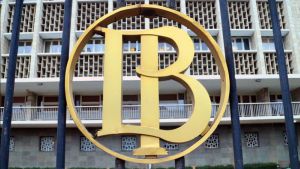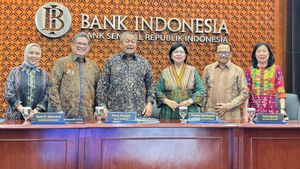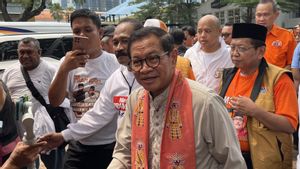JAKARTA - Investors are reminded that there are three risks that need to be considered amid optimism for cutting interest rates which will have a positive impact on the bond market.
Portfolio Manager, Fixed Income PT Manulife Aset Manajemen Indonesia (MAMI) Laras Febriany said, the main risk is if there are indications of a delay in the Fed's interest rate cut, which is influenced by more resilient US economic data from expectations.
"Changes in market expectations can certainly lead to volatility in the market," Laras said, quoting Antara.
According to him, geopoliticals can also be an unpredictable factor, with conflicts continuing in the Middle East and Ukraine, as well as relations between the US and China that tend to be unstable.
"Although this geopolitical condition does not affect the Indonesian economy directly, the escalation of conditions can affect the risk appetite of investors," said Laras.
Then, from the domestic side, the development of inflation and also the 2025 State Revenue and Expenditure Budget (APBN) plan by the new elected President, will be of concern to the market.
He said fluctuating global conditions amid the uncertainty of the Fed's policy would certainly affect foreign investor investment tastes.
On the other hand, according to him, the policy mix of Bank Indonesia (BI) which is pro-stability and interest of strong domestic investors has succeeded in supporting the bond market to date.
"The attractive yield level and market optimism for potential interest rate cuts still supports domestic investors' interest in the bond market," Laras said.
It was noted that for the January-February 2024 period, foreign investors recorded net sales of IDR 5.5 trillion, but BI posted a net purchase of IDR 39 trillion, and individual investors recorded a net purchase of IDR 22 trillion.
SEE ALSO:
Until the end of February 2024, the average auction of Government Securities (SUN) reached IDR 58 trillion per auction, or higher than the average bid in 2023 of IDR 44 trillion.
On this occasion, he did not deny that short-term volatility in the bond market could still occur until there was clarity on the direction of the Fed's interest rate policy, so that, his party always manages the portfolio actively, moving dynamically between defensive and aggressively to form an optimal portfolio.
"The portfolio strategy will be adjusted based on the latest macroeconomic review and focus on management of duration, cash and effect selection to form a portfolio that can move agilely," said Laras.
The English, Chinese, Japanese, Arabic, and French versions are automatically generated by the AI. So there may still be inaccuracies in translating, please always see Indonesian as our main language. (system supported by DigitalSiber.id)
















